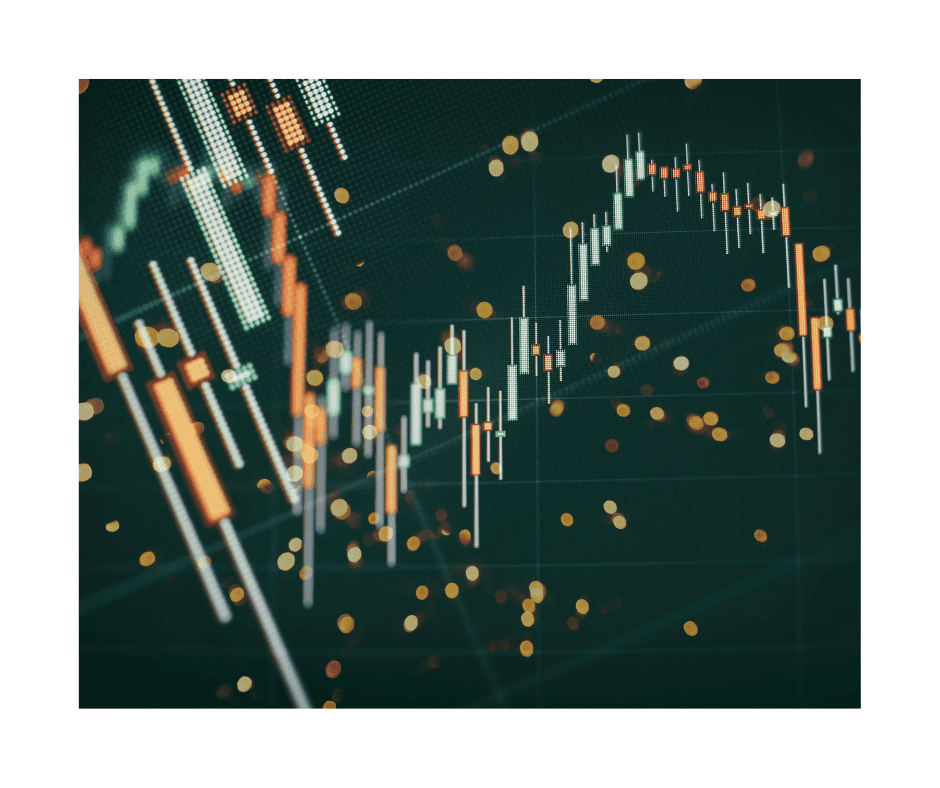Lessons learned from Forex trading have shaped my journey in this dynamic financial market.
Continuous learning and education are essential to master Forex trading.
Understanding the basics of technical and fundamental analysis, practicing effective risk management, and maintaining emotional control are vital components of lessons learned from Forex trading.
Education plays a critical role in Forex trading and is fundamental to success.
It’s important to understand that Forex trading requires skill and strategy and is not a form of gambling or a way to make quick money.
Instead, it is a skill that necessitates continuous learning and development, where knowledge becomes power.
Here are some critical aspects of the educational foundation required for successful Forex trading:
- Understanding the Forex Market: At its core, Forex trading involves the buying and selling of currency pairs.
- When trying to succeed, knowing how the market works is crucial.
- Some essential elements are grasping how to quote currency pairs, understanding the base and quote currencies, and identifying the factors that drive price movements.
- Technical and Fundamental Analysis: Forex traders rely on two primary forms of analysis to make informed decisions: technical analysis and fundamental analysis.
- Technical analysis involves the examination of historical price charts and patterns, while fundamental analysis considers economic indicators, geopolitical events, and central bank policies.
- A comprehensive education should encompass both these analytical approaches.
- Risk Management: An integral part of Forex education is understanding risk management.
- You must learn to protect your capital by setting clear stop-losses, adhering to position sizing guidelines, and not risking more than you can afford to lose on a single trade.
- Neglecting risk management is a common pitfall that can lead to substantial losses.

- Continuous Learning: The Forex market is dynamic and constantly evolving due to various global events and economic factors.
- As such, you must commit to continuous learning by staying updated with market news, economic calendars, and emerging trends.
Various educational resources are readily available to begin one’s Forex journey on the right foot.
Online courses, trading books, webinars, and educational platforms provide information to help you build your knowledge base.
There are many available resources on this site. I recommend starting with the Six Basics of Chart Analysis, which you can find a link here.
The educational foundation equips traders with the necessary skills and instills the confidence to make informed decisions in this highly competitive and volatile market.
Why Risk Management is a Non-Negotiable
One of the most indispensable lessons learned from Forex trading is the unwavering importance of effective risk management.
This concept is not merely a suggestion but an absolute necessity for anyone venturing into the unpredictable waters of the Forex market.
Failure to properly manage risk can swiftly lead to financial ruin, making it an essential strategy.
Here, we delve deeper into the multifaceted aspects of risk management and why it remains non-negotiable in the world of Forex trading:
- Setting Clear Stop-Losses: Using stop-losses is a cornerstone of risk management.
- When setting predetermined price levels, you create safety nets that automatically close a trade once it reaches a specified loss.
- Setting stop-loss levels limits potential losses and prevents a single unfavorable trade from decimating your capital.
- Capital Preservation: Forex trading is not a sprint; it’s a marathon. To profit over time in trading, protecting your capital is vital.
- Risk management strategies, such as limiting the amount of capital allocated to a single trade, ensure you don’t overexpose yourself to unnecessary risk.
- The adage of not putting all your eggs in one basket holds particularly true in Forex trading.

- Position Sizing: Determining the appropriate position size is another critical aspect of risk management.
- It involves assessing the risk associated with a trade and adjusting the position size accordingly.
- Controlling potential losses by aligning position size with the level of risk you are willing to take allows for safer and more sustainable trading.
- Never Risk More Than You Can Afford to Lose: This is a cardinal rule in Forex trading.
- You should establish a risk tolerance level and never risk more capital than you can afford to lose without significant financial repercussions.
- Risking more than one can afford is a surefire way to succumb to emotional stress and impulsive decision-making, leading to devastating losses.
- Diversification: Diversifying your trading portfolio can minimize risk.
- You should spread your trades across various pairs rather than focusing exclusively on a single currency pair.
- This approach helps mitigate the impact of adverse movements in a single currency.
- Emotions and Discipline: Risk management extends beyond the technical aspects of trading.
- It encompasses emotional control and discipline. Fear and greed can lead to irrational decisions, such as abandoning a well-thought-out trading plan or chasing losses.
- Even when emotions run high, you must adhere to your risk management rules with discipline.
Incorporating risk management into your trading strategy is not a mere option; it is a prerequisite for longevity and success in Forex trading.
Why Making Emotional Control is Vital
Emotional control is undeniably one of the most critical lessons learned from Forex trading.
If you want to be successful in Forex trading, you must prioritize emotional control.
In this regard, let’s discuss the role of emotions:
- The Psychological Rollercoaster: The Forex market is a dynamic and ever-changing arena where prices can swing wildly in seconds.
- These rapid fluctuations can evoke intense emotions such as excitement when a trade is profitable and anxiety or frustration when it moves against you.
- Without emotional control, you can easily fall victim to the psychological rollercoaster, making erratic decisions driven by your immediate feelings.

- The Role of Fear and Greed: Fear and greed are two powerful emotions that can lead to disastrous trading decisions.
- Fear often prompts you to exit winning trades prematurely or hold onto losing ones, hoping they will turn around.
- On the other hand, greed can encourage you to take on excessive risk, deviating from your trading plans in pursuit of higher profits.
- Both scenarios can lead to significant losses.
- Sticking to the Trading Plan: A well-structured trading plan is your roadmap to success.
- It outlines entry and exit points, risk management strategies, and position sizing rules.
- Emotional control is vital for adhering to this plan consistently.
- Straying from the plan due to emotional reactions can undermine its effectiveness and lead to inconsistent results.
- Overcoming Loss Aversion: Loss aversion is a psychological bias that can be particularly detrimental in Forex trading.
- You will feel the pain of losses more intensely than the pleasure of gains, leading you to take premature actions to avoid further losses.
- Emotional control helps you overcome loss aversion and make rational decisions based on your trading strategies rather than emotional discomfort.
- Maintaining Patience: The Forex market can be slow-moving, and you may experience stagnation or small losses.
- Emotional control is essential for maintaining patience during such times, preventing you from overtrading or making impulsive decisions in an attempt to force profits.
- Building Discipline: Emotional control and discipline go hand in hand.
- Discipline is sticking to your trading plan and consistently following your risk management rules.
- With emotional control, maintaining discipline becomes manageable.

So, how can you cultivate emotional control in these challenges?
- Practice Mindfulness: Awareness of your emotions while trading is the first step towards control.
- Mindfulness techniques, such as deep breathing or meditation, can help you stay focused and calm during turbulent market moments.
- Develop a Trading Routine: Establishing a structured trading routine can help create a sense of consistency and predictability, reducing the impact of emotional fluctuations.
- Take Breaks: Stepping away is okay if you become overly emotional or stressed during trading.
- Taking short breaks can help reset your mindset and prevent impulsive decisions.
- Review and Reflect: Review your decisions and emotions after each trading session.
- This self-reflection can provide valuable insights into areas lacking emotional control.
- Seek Support: Consider joining a trading community or seeking the guidance of a mentor.
- Sharing experiences and strategies with others can help you gain perspective and learn from their emotional control techniques.
By mastering emotional control, you can trade Forex with a clear and focused mindset, increasing your chances of long-term success.
Do Your Trading Strategies Evolve With Market Shifts
As market conditions, economic factors, and geopolitical events shift, you must be agile in adjusting your strategies to stay competitive and profitable.
Here, we dig into why your trading strategies must evolve in the Forex market:
- Market Dynamics are Ever-Changing: The Forex market is a dynamic entity that constantly responds to many factors, including economic data releases, geopolitical developments, central bank policies, and global events.
- These factors influence currency prices, causing trends and patterns to emerge and dissipate.
- Recognizing market dynamics are continually shifting is the first step in understanding why trading strategies must evolve.
- Adapt to Different Market Conditions: Various market conditions require different strategies.
- For instance, a trending market may favor trend-following strategies, while a ranging or consolidating market may necessitate a range-bound or mean-reversion strategy.
- You must adapt your approach to fit the prevailing market environment.

- Avoiding Over-Optimization: Over-optimization, or curve-fitting, occurs when a trading strategy is excessively tailored to historical data to fit past market conditions.
- However, such strategies often fail in real-time trading when conditions differ.
- Evolving strategies prevent over-optimization by ensuring they remain adaptable and not excessively reliant on past data.
- Continuous Learning: The Forex market offers many trading strategies, each with strengths and weaknesses.
- Traders must continuously learn to discover new techniques, refine existing ones, and explore different trading styles.
- Staying open to new ideas and approaches is essential to trading success.
- Analyzing Historical Performance: Regularly reviewing the historical performance of trading strategies is essential.
- This analysis helps you identify which strategies yield consistent profits and which may need further refinement or replacement.
- Stay Informed: Knowing about global economic events and market news is vital for strategy evolution.
- Major announcements or geopolitical developments can immediately impact currency prices, requiring traders to adjust their strategies accordingly.
To thrive in Forex trading, you must cultivate a mindset of continuous improvement, innovation, and a willingness to adjust strategies as needed.
Doing so increases their chances of achieving consistent profitability and long-term success in this dynamic financial arena.

Why You Should Keep an Eye on Economic Events
When trading Forex, keeping track of economic events and news releases is essential.
This practice is crucial and can significantly impact your trading decisions.
The Forex market is susceptible to economic data, geopolitical developments, and central bank actions, making it essential for traders to stay informed about these events.
Here, we discover why monitoring economic events is crucial and how it influences trading strategies:
- Economic Events Drive Currency Movements: Economic data releases and events directly impact currency prices.
- Indicators such as GDP reports, employment figures, inflation rates, and central bank interest rate decisions can lead to substantial market movements.
- Understanding the implications of these events on currency pairs is essential for making informed trading decisions.
- Central Bank Policies: Central banks, such as the Federal Reserve (Fed), the European Central Bank (ECB), and the Bank of Japan (BoJ), play a pivotal role in shaping currency markets.
- Announcements regarding interest rate changes, monetary policy decisions, and forward guidance from central banks can trigger significant volatility in currency pairs.
- Geopolitical Developments: Geopolitical events, including elections, trade negotiations, and international conflicts, can also impact currency prices.
- For instance, uncertainty surrounding a significant election or a breakthrough in trade talks can lead to abrupt and unpredictable market movements.
- Market Sentiment: Economic events provide valuable data and shape market sentiment.
- Positive economic data can boost a country’s economy, while negative data can erode confidence.
- You must analyze the data and how market participants will likely interpret and react to it.

- Timing is Crucial: Timing is crucial when trading around economic events.
- Use an economic calendar to plan your trades, considering crucial data releases.
- Volatility Opportunities: Economic events increase market volatility, presenting opportunities and risks.
- Some traders thrive in volatile conditions, while others prefer calmer markets.
- Knowing when to engage and when to stay on the sidelines is a skill developed through experience and staying informed.
- Currency Correlations: Economic events can affect currency correlations, changing the relationships between currency pairs.
- Fundamental vs. Technical Analysis: Economic events often intersect with technical analysis.
- Use both fundamental and technical analysis to make informed decisions.
- You can develop a well-rounded understanding of market dynamics by combining the two approaches.
- Risk Management: Economic events can lead to heightened market uncertainty.
- Effective risk management is crucial during these periods to protect capital from unexpected market movements.
- You may make decisions regarding reducing position sizes or setting wider stop-loss levels.
Use economic calendars from financial news sources, brokers, or trading platforms to monitor economic events.
These calendars list upcoming events, their expected impact, and historical data for comparison.
Additionally, you should follow reputable news sources that provide in-depth analysis and insights into economic developments.

Why You Should Consider Trading a Long-Term Endeavor
One of the most crucial lessons learned from Forex trading is that it is not a get-rich-quick endeavor; it’s a long-term commitment that requires patience, discipline, and a strategic approach.
The notion of overnight success in the Forex market is a fallacy, and those who approach trading with unrealistic expectations often find themselves disappointed and financially strained.
Here, we explore why trading is a long-term endeavor and how this perspective can lead to sustainable success:
- Building Expertise Takes Time: Becoming a proficient Forex trader is akin to mastering any other skill or profession—it demands time and dedication.
- Novice traders often need a more comprehensive understanding of market dynamics and strategies.
- To become consistently profitable, you must undergo a learning curve that includes education, practice, and real-world experience.
- Overcoming Challenges: The Forex market faces volatility, emotional stress, and unexpected events that can impact currency prices.
- Please be prepared to face these challenges head-on, as they are an inevitable part of the journey that you will undertake.
- Do not view setbacks as failures but as opportunities to learn and grow.
- Embracing Risk Management: Long-term traders recognize the importance of risk management in preserving their capital.
- Prioritize protecting your account over chasing quick profits, understanding that capital preservation is paramount for continued trading success.
- This approach requires discipline and the ability to resist the allure of high-risk strategies.
- Adapting to Changing Market Conditions: The Forex market is dynamic, with market conditions that can change rapidly.
- Be adaptable and willing to adjust your strategies as market conditions evolve.
- Understand that what worked in the past may not work in the present, and continually refine your approach to remain effective.
- Patience is a Virtue: Patience is often extolled in trading. Long-term traders embrace this philosophy.
- Be patient for high-probability trade setups, allowing trades to develop and enduring periods of drawdown or stagnation.
- Impulsivity and a desire for instant gratification are antithetical to long-term trading success.

- Learning from Mistakes: Mistakes are an inherent part of trading.
- View mistakes as opportunities for growth and self-improvement.
- Maintain a trading journal to analyze your decisions, identify areas of improvement, and adjust your strategies accordingly.
- Each mistake becomes a valuable set of lessons learned from Forex trading.
- Avoiding Overtrading: Overtrading, or the compulsion to trade excessively, can lead to financial ruin.
- Recognize the importance of discipline and self-control in avoiding overtrading.
- Adhere to their trading plans and only enter the market when the conditions align with your strategies.
- Emotional Mastery: Long-term traders prioritize emotional control and emotional mastery.
- Understand impulsive decisions driven by fear or greed can lead to losses.
- By cultivating a disciplined mindset and emotional resilience, you can weather the emotional ups and downs of trading with equanimity.
- Realistic Expectations: Long-term traders maintain realistic expectations about their trading outcomes.
- Focus on achieving consistent, sustainable returns over the long haul.
Lessons learned from Forex trading include the philosophy that Forex trading success is a long-term endeavor.
Long-term traders approach the market, understanding that it requires dedication, ongoing education, and a mindset prioritizing risk management, patience, and adaptability.
The Reasons You Need to Keep a Trading Journal
Maintaining a trading journal is a fundamental practice that separates successful Forex traders from those who struggle to achieve consistent profitability.
This invaluable tool serves as a personal record of your trading journey, documenting every aspect of your trading experiences, decisions, and outcomes.
Here, we consider why keeping a trading journal is crucial and how it contributes to trading success:
- A Chronicle of Your Trading Journey: A trading journal is, in essence, a chronicle of your trading journey.
- It records your progress from the day you start, providing a comprehensive and tangible account of your growth and development as a trader.
- This record can motivate you, allowing you to see how far you’ve come.

- Objective Self-Assessment: Trading is as much about self-discovery as it is about financial gain.
- A trading journal encourages objective self-assessment by requiring you to reflect on your actions, emotions, and decisions.
- It compels you to confront your strengths and weaknesses as a trader, helping you identify areas for improvement.
- Trading Strategy Evaluation: By documenting every trade, entry and exit point, and the rationale behind each decision, you gain a clearer understanding of the efficacy of your trading strategy.
- Over time, you can analyze your trading journal to discern patterns of success and failure, enabling you to refine your strategy accordingly.
- Emotional Control: Trading is an emotional endeavor that can significantly impact decision-making.
- A trading journal provides a space to record your emotional state during each trade.
- This self-awareness allows you to recognize patterns of emotional reactions and work on maintaining better emotional control.
- Risk Management Assessment: Effective risk management is vital in Forex trading.
- A trading journal helps you assess your adherence to your risk management rules.
- It allows you to track the consistency of your position sizing, stop-loss placements, and overall risk exposure.
- Learning from Mistakes: Mistakes are inevitable in trading. However, mistakes become valuable lessons learned from Forex trading when documented in your journal.
- Reviewing past errors, understanding their causes, and identifying patterns can help you avoid repeating them in the future.
- Identifying Success Factors: Conversely, a trading journal highlights what works.
- It showcases your successful trades and the strategies and conditions that led to positive outcomes.
- You can build on your strengths and replicate successful approaches by recognizing them.
- Accountability: A trading journal holds you accountable for your trading decisions.
- It provides transparency and a degree of discipline.
- The documentation of each trade encourages traders to make more thoughtful and well-reasoned decisions.
- Future Planning: Your trading journal is not just a record of the past; it’s a tool for future planning.
- It helps you set realistic goals, track progress, and adjust your trading plan accordingly.

- Reference for Improvement: Over time, your trading journal becomes a reference for improvement.
To create a helpful trading journal, consider including the following elements:
- Trade date and time
- Currency pair traded
- Entry and exit points
- Position size
- Reason for taking the trade
- Emotional state at the time of the trade
- Stop-loss and take-profit levels
- Trade outcome (win or loss)
- Post-trade analysis and lessons learned
Maintaining a trading journal may require additional effort, but its benefits are worth the investment.
Why Avoiding Overtrading Will Save Your Account
One critical lesson learned from Forex trading is the importance of avoiding overtrading.
Overtrading occurs when you take excessive positions or risk more capital than you should, often driven by emotions, impatience, or the desire for quick profits.
This dangerous practice can lead to significant losses and erode your account.
Here, we explore why avoiding overtrading is paramount and how to steer clear of this common pitfall:
- Risk of Capital Depletion: Overtrading poses a significant risk of depleting your trading capital rapidly.
- Taking too many positions or risking a large portion of your capital on a single trade can lead to substantial losses that are difficult to recover.
- Prudent risk management involves staying well within your predetermined risk tolerance.
- Emotional Decision-Making: Overtrading often results from emotional decision-making.
- Impulsive actions driven by greed or the desire to recover losses can cloud judgment and lead to poor choices.
- Understand the importance of remaining disciplined and sticking to your trading plans, even in market temptations.
- Diminished Focus: Overtrading can diminish your focus and attention on each trade.
- Simultaneously managing multiple positions can become overwhelming, leading to critical oversights or delayed responses to market developments.
- Quality should always take precedence over quantity in trading.

- Increased Transaction Costs: Frequent trading increases transaction costs, including spreads, commissions, and swaps.
- These costs can eat into your profits and make it more challenging to achieve consistent gains.
- Trading Fatigue: Trading can be mentally taxing, especially during high volatility.
- Overtrading can lead to trading fatigue, causing errors, lapses in judgment, and exhaustion.
- A rested and focused mind is essential for effective decision-making.
- The Strain on Emotional Control: Overtrading can strain your emotional control.
- You may become more emotionally reactive as losses accumulate from excessive trading, leading to impulsive decisions and further losses.
- Maintaining a calm and disciplined mindset becomes increasingly tricky.
- Quality Over Quantity: Always prioritize the quality of your trades over the quantity of trades.
- Understand that only some market conditions present a viable trading opportunity, and being selective is essential.
- Patiently waiting for high-probability setups aligning with your trading strategy leads to more consistent results.
- Stick to Your Plan: Adhering to a well-defined trading plan is crucial in avoiding overtrading.
- Your plan should include specific criteria for entering and exiting trades and risk management guidelines.
- Following your plan makes you less likely to fall into the overtrading trap.
- Set Trading Limits: Establishing trading limits can help prevent overtrading.
- These limits can include a maximum number of trades per a certain period, a specific risk percentage per trade, or a profit or loss threshold.
- You should step away from the market once you reach these limits.
- Regular Self-Assessment: Regularly assess your trading behavior and discipline.
- Find yourself deviating from your trading plan, taking impulsive actions, or feeling overwhelmed by the number of trades.
- It may be time to reevaluate your approach and remind yourself of the importance of avoiding overtrading.
Avoiding overtrading is one of the critical lessons learned from Forex trading. It emphasizes the need for discipline, patience, and a strategic approach to trading.

Make a Plan for Continuous Evaluation and Improvement
One of the most valuable lessons learned from Forex trading is the importance of continuous evaluation and improvement.
Here, we demonstrate why continuous evaluation and improvement are crucial and how they contribute to trading proficiency:
- Adapting to Changing Market Conditions: Economic factors, geopolitical events, and market sentiment constantly influence the ever-changing dynamics of the Forex market.
- Continuous evaluation allows you to adapt your strategies to align with market conditions.
- What worked yesterday may not work today, and you must remain flexible and open to adjustments.
- Identifying Strengths and Weaknesses: Self-assessment is a fundamental part of continuous improvement.
- You must identify your strengths and weaknesses honestly.
- Recognizing areas where you excel and where you struggle enables you to focus on building on your strengths and addressing weaknesses through targeted efforts.
- Refining Trading Strategies: Trading strategies should not be static.
- Regular evaluation helps you refine your strategies by identifying which components are practical and which require adjustment.
- This iterative process can lead to more robust and reliable trading approaches.
- Enhancing Risk Management: Continuous evaluation also extends to risk management practices.
- You should assess whether their risk management rules effectively preserve capital and mitigate losses.
- Adjustments may be necessary to align risk management strategies with changing market conditions.
- Reviewing Historical Performance: A vital aspect of continuous evaluation is reviewing historical performance.
- By analyzing past trades and outcomes, you gain insights into your trading behavior, decision-making processes, and the effectiveness of your strategies.

- Emotional Mastery: Self-assessment includes evaluating emotional responses during trading.
- Recognizing patterns of emotional reactions—such as anxiety, impulsivity, or overconfidence—can help you develop better emotional control.
- Emotional mastery is crucial for maintaining discipline in market fluctuations.
- Keeping a Trading Journal: A trading journal is integral to continuous evaluation.
- Regularly reviewing your journal provides a tangible record of your progress and helps identify areas for improvement.
- Learning from Mistakes: Mistakes are valuable learning opportunities.
- Rather than dwelling on losses, view them as stepping stones to improvement, making adjustments to avoid repeating similar errors.
- Goal Setting: Setting specific and achievable trading goals is another continuous evaluation component.
- These goals can be related to profit targets, risk management, or personal development.
- Regularly assessing progress toward these goals provides direction and motivation for improvement.
Continuous evaluation and improvement are fundamental principles in Forex trading.
Successful traders recognize that growth and proficiency in trading are ongoing processes.
Conclusion
Forex trading is a journey that offers valuable lessons at every step.
From the importance of education and risk management to the need for emotional control and adaptability, these lessons have been instrumental in my trading success.
Remember that Forex trading is not a guaranteed path to wealth, but it can be a rewarding endeavor with discipline, dedication, and continuous learning.
Embrace these lessons, stay patient, and strive for improvement to become a successful Forex trader.
What’s the Next Step?
Think about your trading habits and where these lessons learned could be helpful.
In addition, look for opportunities to improve your habits or adjust your mindset.
Once you’re ready to trade, choose a strategy and process you believe will work for you.
If you need help developing an analysis process, you can use our Six Basics of Chart Analysis. If you’re unfamiliar with the Six Basics, you can learn them here for free.
The “Six Basics” will give you a strong foundation in chart analysis, which you can incorporate with what you’ve learned lessons learned from Forex trading.
In addition, when you get the “Six Basics,” you’ll also get Forex Forecast delivered to your inbox every Sunday.
Forex Forecast includes:
- Trade Ideas and Analysis
- I will show you the trade opportunities I’m watching using the Six Basics of Chart Analysis and Advanced Strategies.
- Case Studies from Around the Web
- Watch how applying the Six Basics worked on some of the best, most profitable trades.
- Trading Education Guides and Videos
- Want to learn most Six Basics techniques and advanced strategies?
- I produce Videos and Guides to help you learn and build a better trading practice.
- Links to New Articles
- I publish new articles on topics traders will want to know about every week, and you can find out when they post.
- Positionforex.com News
- Did something change at positionforex.com? Learn about it here first!
- Links to upcoming webinars
- Attend free webinars to improve your trading.
- And Much More
- Tools, Membership-only Videos, and more will be released in the Forex Forecast.
The best part – it’s completely free.

Frequently Asked Questions
What are the Critical Lessons Learned from Forex Trading?
Forex traders often learn valuable lessons such as the importance of education, risk management, emotional control, and the need for adaptable trading strategies.
These lessons contribute to their long-term success in the market.
Why is Risk Management Considered a Non-Negotiable Aspect of Forex Trading?
Risk management is non-negotiable in Forex trading because it protects traders from significant losses.
Setting clear stop-loss orders, preserving capital, and adhering to position-sizing rules are essential to effective risk management.
How do Traders Cultivate Emotional Control in Forex Trading?
Traders cultivate emotional control through self-awareness, mindfulness techniques, maintaining discipline, and continuous practice.
It is crucial to recognize the impact of emotions on trading decisions and learn to manage them.
What Role Does Continuous Evaluation and Improvement Play in Forex Trading?
Continuous evaluation and improvement are essential for Forex traders to stay competitive.
It involves adapting to changing market conditions, refining trading strategies, enhancing risk management practices, and learning from successes and mistakes.
This ongoing process leads to trading proficiency and long-term success.

